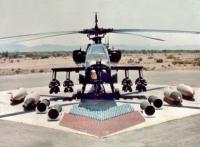-
ISIS runs fish farms, car dealerships to compensate for lost oil revenues
The U.S.-led coalition’s air strike have crippled the ISIS oil-smuggling-based economy, forcing the organization to rely on fish farming and car dealing as alternative money generating resources, a new report has revealed. In order to close a yawning gap in the organization’s once-lucrative $2.9 billion oil trading scheme, ISIS has now increasingly turned to other revenue streams.
-
-
Coalition’s campaign has seriously weakened ISIS financial position
The coalition’s airstrikes on ISIS-controlled oilfields, the recapturing of ISIS-held territory, and destruction of the group’s cash storage facilities – in which up to $800 million in cash went up in smoke — may have seriously undermined ISIS and its operations in Syria and Iraq, the coalition’s military commanders said. Officials at the U.K Ministry of Dense said earlier this week that ISIS has increasingly been resorting to arbitrary fines, extortion, and gangster-like tactics to compensate for the shortfall in income.
-
-
U.S. employs Israeli “roof-knocking” air strike tactic
The U.S. military is now employing a controversial air strike technique called “roof-knocking,” which was widely used by Israel during the war with Hamas in the Gaza Strip in summer 2014. The approach involves dropping small munitions in the roof of a house in which terrorists are suspected to be hiding, or which is suspected of being a storing facility for terrorists weapons. The purpose of dropping the small, harmless munitions on the roof is to alert civilians in the house that they have a few minutes to escape to safety.
-
-
Snowden revelations led to “chilling effect” on pursuit of knowledge: Study
National Security Agency (NSA) whistleblower Edward Snowden’s 2013 mass surveillance revelations caused a drop in website browsing, particularly in internet searches for terms associated with extremism, an example of the most direct evidence yet that the spying operations exposed in the leak had a “chilling effect” on the lawful pursuit of information, an impending report has found.
-
-
Canada, U.K. to press other nations to stop ransom payments to terrorists
Canada and Britain will work together to persuade other nations to stop the flow of ransom payments to terrorists, Canada’s prime minister Justin Trudeau said on Tuesday. “Canada does not and will not pay ransom to terrorists, directly or indirectly,” Trudeau told reporters in Alberta. His statement came one day after Canadian hostage John Ridsdel, a former mining executive, was killed by Islamist Abu Sayyaf militants in the Philippines. He was killed within hours after the Canadian government did not respond to the group’s ransom demand.
-
-
Number of civilian casualties from explosives around the world continues to grow
For the fourth year in a row, 2015 saw a rise in the number of civilian casualties from explosive violence around the world: 33,307 civilians having been killed or injured by explosive weapons – up 2 percent from 2014, and 54 percent more than when Action on Armed Violence’s (AOAV) monitoring began in 2011.
-
-
Pentagon “dropping cyberbombs” on ISIS
Deputy Secretary of Defense Robert Work has said that the U.S. military is “dropping cyberbombs” on ISIS. Earlier this month, Defense Secretary Ashton Carter announced that the U.S. Cyber Command had been given its “first wartime assignment” – attacking and disrupting ISIS cyber infrastructure. in the last few months, the Pentagon has allowed more information to be published about the U.S. military’s cyberwar against ISIS. Work, describing the Cyber Command’s operations at a news conference, said: “We are dropping cyberbombs. We have never done that before.”
-
-
Obama administration to release secret 28 pages of 9/11 Commission report
The Obama administration will release at least part of a 28-page classified chapter from the 9/11 Commission report which implicates high-level Saudis, both inside and outside government, in the 9/11 terrorist attacks. Former Senator Bob Graham (D-Florida), a co-chair of the commission, said he believed the Obama administration would make a decision on the issue by June.
-
-
Lasting defeat of ISIS requires a stronger U.S.-coalition strategy
The current effort by the United States and its coalition partners is insufficient to achieve the lasting defeat of ISIS, according to a new study. Successful conclusion of the campaign will require significantly increased effort by the United States across two fronts: First, more-comprehensive training, advising, and assisting; second, political agreements must be forged to resolve key drivers of conflict among Iraqis and Syrians.
-
-
Nigerian military accused of covering up mass killing of civilians
Mass killing of hundreds of men, women, and children by soldiers in Zaria and the attempted cover-up of this killing demonstrates a contempt for human life and accountability, said Amnesty International as it publishes evidence gathered on the ground showing how the Nigerian military burned people alive, razed buildings, and dumped victims’ bodies in mass graves.
-
-
Families of terror attacks victims can claim $2bn from Iran’s frozen assets: U.S. Supreme Court
The U.S. Supreme Court has ruled that the families of victims from several Iran-directed or Iran-related terrorist attacks in the 1980s and 1990s can collect close to $2 billion from Iran’s frozen assets. The Supreme Court, in a 6-2 decision, upheld a lower court’s ruling that Congress was within its remit to pass the law requiring Iran to do so.
-
-
Latvia bans wearing Islamic full-face veils in public
There are around 1,000 practicing Muslims living in Latvia, a small Baltic country with a population of two million, and only three women living in Latvia wear the Islamic full-face veil in public. The Latvian government has decided to ban the practice anyway. The government says the new legislation is necessary to protect Latvian culture and prevent terrorists from smuggling weapons under garments.
-
-
U.S. deploys more troops, Apache helicopters to Iraq to help in attack on Mosul

Defense secretary Ash Carter said the United States will send 200 additional troops and a number of Apache helicopters to Iraq to assist in the fight against ISIS. He added that the new forces will be used mostly to advise Iraqi forces on the front lines. The decision to deploy the troops has been made in the context of the Iraqi drive to recapture the city of Mosul.
-
-
EU offers security assistance to Libya
The EU has responded favorably to a request from the new UN-backed Libyan unity government for security assistance – especially in managing migration, border monitoring, and police capacity building. EU officials stopped short, however, of committing the EU to operate on the Libyan coast and in Libyan territorial waters to block people smugglers. The EU said it would be more effective to build up the capacity of the Libyan security forces to deal with the issue.
-
-
Location data on two apps enough to identify someone: Study

Stripping a big data set of names and personal details is no guarantee of privacy. Previous research has shown that individual shoppers, Netflix subscribers, and even taxicab riders are identifiable in heaps of supposedly anonymous data. Now, a team of computer science researchers has identified new privacy concerns by demonstrating that geotagged posts on just two social media apps are enough to link accounts held by the same person.
-
More headlines
The long view
Factories First: Winning the Drone War Before It Starts
Wars are won by factories before they are won on the battlefield,Martin C. Feldmann writes, noting that the United States lacks the manufacturing depth for the coming drone age. Rectifying this situation “will take far more than procurement tweaks,” Feldmann writes. “It demands a national-level, wartime-scale industrial mobilization.”
No Nation Is an Island: The Dangers of Modern U.S. Isolationism
The resurgence of isolationist sentiment in American politics is understandable but misguided. While the desire to refocus on domestic renewal is justified, retreating from the world will not bring the security, prosperity, or sovereignty that its proponents promise. On the contrary, it invites instability, diminishes U.S. influence, and erodes the democratic order the U.S. helped forge.
Fragmented by Design: USAID’s Dismantling and the Future of American Foreign Aid
The Trump administration launched an aggressive restructuring of U.S. foreign aid, effectively dismantling the United States Agency for International Development (USAID). The humanitarian and geopolitical fallout of the demise of USAID includes shuttered clinics, destroyed food aid, and China’s growing influence in the global south. This new era of American soft power will determine how, and whether, the U.S. continues to lead in global development.
Water Wars: A Historic Agreement Between Mexico and US Is Ramping Up Border Tension
As climate change drives rising temperatures and changes in rainfall, Mexico and the US are in the middle of a conflict over water, putting an additional strain on their relationship. Partly due to constant droughts, Mexico has struggled to maintain its water deliveries for much of the last 25 years, deliveries to which it is obligated by a 1944 water-sharing agreement between the two countries.
How Disastrous Was the Trump-Putin Meeting?
In Alaska, Trump got played by Putin. Therefore, Steven Pifer writes, the European leaders and Zelensky have to “diplomatically offer suggestions to walk Trump back from a position that he does not appear to understand would be bad for Ukraine, bad for Europe, and bad for American interests. And they have to do so without setting off an explosion that could disrupt U.S.-Ukrainian and U.S.-European relations—all to the delight of Putin and the Kremlin.”
How Male Grievance Fuels Radicalization and Extremist Violence
Social extremism is evolving in reach and form. While traditional racial supremacy ideologies remain, contemporary movements are now often fueled by something more personal and emotionally resonant: male grievance.
